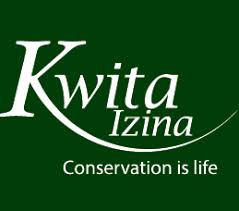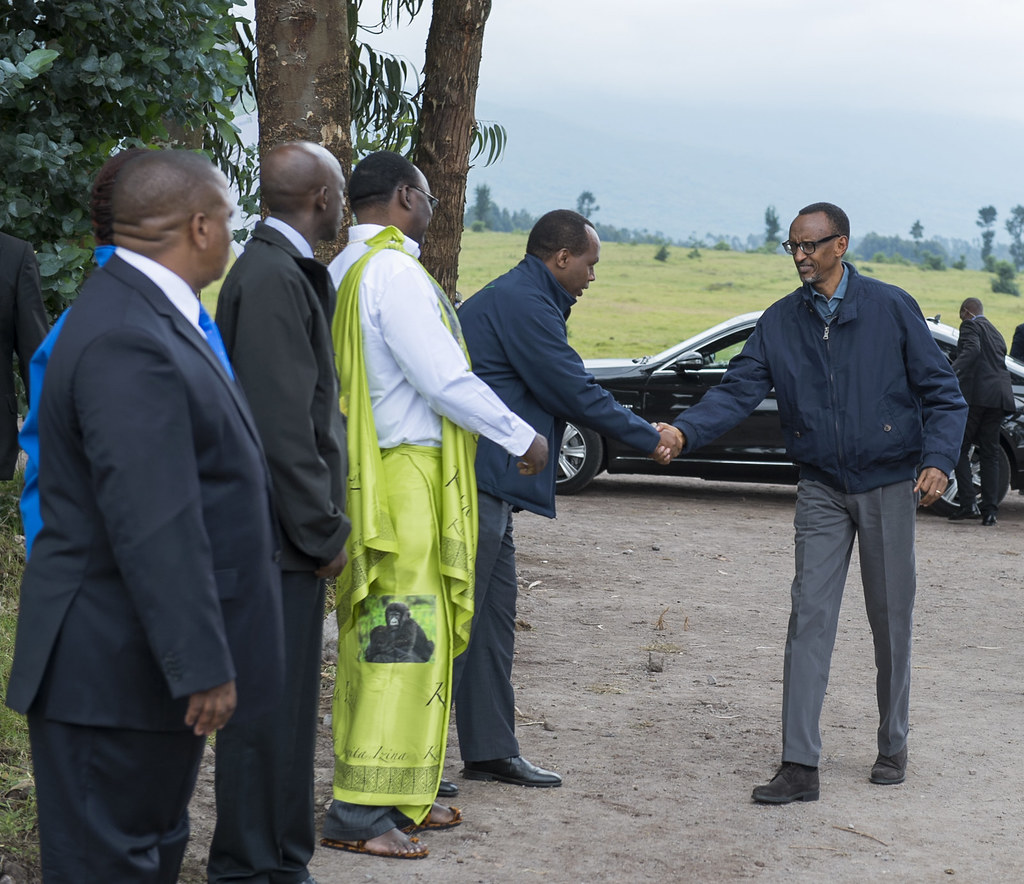I am delighted to welcome to Rwanda this impressive gathering comprised of conservationists, business people, entertainment personalities, media, policymakers from many parts of the world, including the United States, United Kingdom, Austria, Australia, Switzerland, our partner countries of the East African Community and CEPEGL – and of course the local conservationists, leaders and the community from Musanze district.
I have no doubt that this occasion, as we just witnessed in the kwita izina ceremony, allows us to celebrate our conservation milestones – but also permits us to think afresh in how we can do more in this field.
The context to our presence here today is both specific and broad – specific in the sense that we are here to name the new born baby gorilla as we just witnessed, but broad at least in three instances.
First, the naming is possible because of the healthy conservation agenda Rwanda has been pursuing other past decade.
Second, our general post-conflict reconstruction process continues to steer our country towards a more stable and productive future.
Third, our region both in regards to CEPEGL and East Africa continues to reap the dividends of peace and stability, a factor that is allowing us to consolidate our regional integration – which in turn promises to enable to realize economies of scale and competitiveness for greater prosperity in our country and region.
DISTINGUISHED LADIES AND GENTLEMEN
What have the above factors enabled us in Rwanda to achieve in terms of conservation, and what are the challenges we still face?
Among our modest achievements is the changed approach to conservation. In the past, conservation was principally the business of international non-governmental organizations, scientists and researchers. There was minimal
Then
Tourism was not actively pursued as a means of wealth-creation;
Conservation as well as broader environmental management was not given due importance – somewhat neglected;
Institutions were dependent on government handouts – which were moreover not sufficient for required effectiveness;
Policing as opposed involving communities in finding solutions – and developing stakes for them; No direct benefits for communities; they were in fact hostile
Now
Government:
1. Top priority: tourism is now economic driver;
2. Environment is seen as fundamental to sustainable prosperity creation – it is not either or in Rwanda both have to be pursued; case in point is the Nyungwe Forest was upgraded into a national park;
3. No reduction of park areas in the last ten years;
4. Institutions responsible for conservation and tourism have been reinforced and given broader mandate – ie research, marketing, community mobilization, veterinary services;
5. Institutions have greater capacity to self-finance through tourism receipts and park management; eg Rwanda tourism office no longer receives government subsidy – it has to mobilize its own, and has successfully done so in the past three years.
Local: Communities are involved in conservation activities and tourism;
Receive share of revenue through a sharing formula since 2003;
Joint agency-community initiatives to reduce conflict between communities and wildlife is bearing fruits
Community lodge fully owned by the community in Kinigi is to become operational later this year – this effort has been financed by resources mobilized through events such as this one today.
Business: increased investment in tourism-related businesses by Rwandans;
Business no longer on the side life of conservation and tourism – but in the mainstream, as shown by their participation in this event today.Region: trans-boundary collaboration in protection of wildlife; e.g. Virunga massiff eco-system is now jointly protected by DRC, Uganda and Rwanda – including revenue-sharing from gorilla tourism.
Research collaboration: Rwandan research capabilities in conservation within the protected areas have been strengthened considerably – leading to collaboration with international research agencies – it is no longer one-sided where the later did all the research.
What is the over all results?
Almost all national parks have marked some notable achievements.
For example, in the case of the Akagera National Park, rhinos and lions re-appeared – thereby rendering the park a home to the big five (lion, rhino, elephant, buffalo and leopard). Nyungwe National Park is finally to have an appropriate facility to enable foreign and domestic tourism to stay longer and enjoy its beauty – the Nyungwe eco-lodge is expected to be completed 2008.
All in all, tourism is playing a bigger part in the development process – US$36 million was earned from tourism receipts in 2006, 30% increase from 2005. This makes tourism the third largest foreign exchange earner. This fact should encourage generally more investment into the sector.
DISTINGUISHED LADIES AND GENTLEMEN
Some challenges remain, among them pressures of human population in terms of new agricultural lands, livestock pastures, and firewood. This challenge obviously requires a multi-sectoral approach to solve, including economic growth and rural development, improved sensitization in family planning – and generally find alternative income-generating activities in our country.
Another challenge is national water management and delivery. We still face in many parts of our country water shortages, despite extensive water systems – due to inability to manage it. This is means that in dry seasons, people and communities invade parks looking for water resources – which brings about human and wildlife conflicts. This underscores the importance of viewing environmental challenges in the broader national context.
Another challenge revolves around park boundaries in Rwanda. It is still a fact that human and wildlife are competing for space and resources. This requires that we balance these competing needs by, among other things, fencing and creation of buffer zones, as well as finding alternative economic pursuits with regard to our population.
The fencing of Akagera is due 2008 – in the meantime, the Rwanda Tourism and Conservation Agency is complete specific modalities of compensating communities for loss of property due to wildlife incidents.
In this respect, investment in our country in general and in tourism in particular is very much an area that we need a major break-through.
Finally, notwithstanding the capacity acquired by Rwandan agencies in tourism and conservation, and indeed the whole hospitality industry, a lot of work needs to be done. This includes attitudes generally in Rwanda’s services industry. I am of the view that almost a revolution has to occur in order to become a truly world class destination that Rwanda has to become.
FRIENDS AND COLLEAGUES
We have a long way in both building a viable tourism sector and in conservation.
Rwandan institutions, business leaders and local communities have joined the mainstream of tourism and conservation – which was not the case a few ago.
As most of our efforts in other fields, we would not have made the noted advances without our international friends, some of whom are present here today.
We must continue to forge such productive relationships for even better results.
I THANK YOU FOR YOUR KIND ATTENTION


